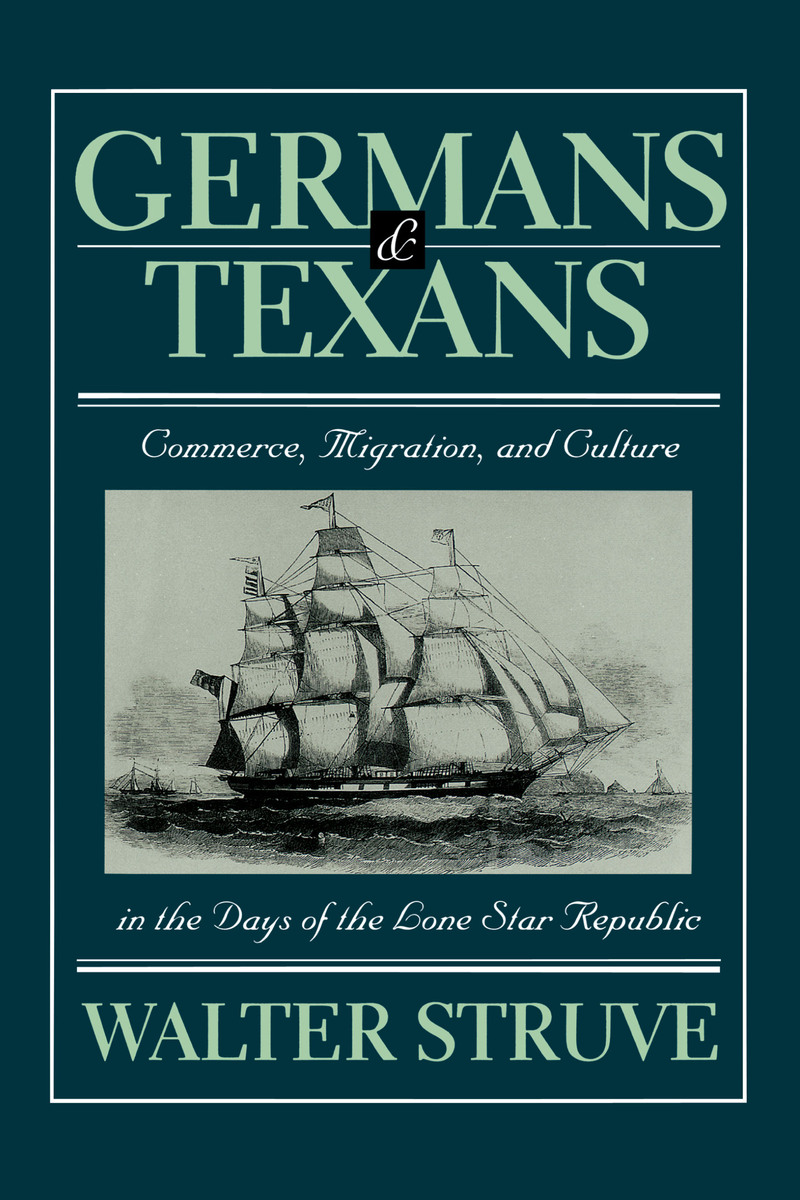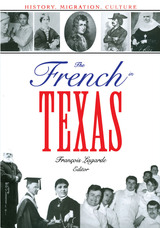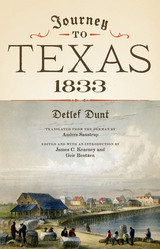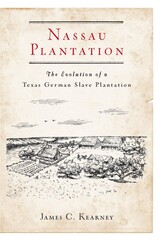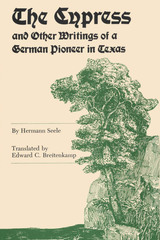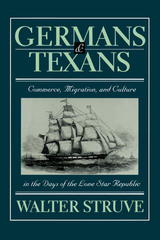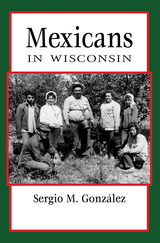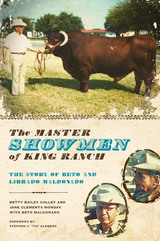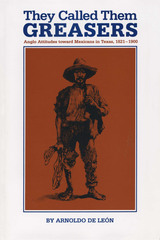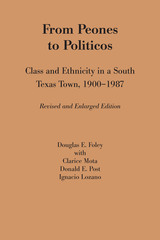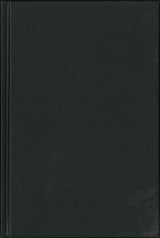Cloth: 978-0-292-77700-2 | Paper: 978-0-292-77701-9 | eISBN: 978-0-292-78574-8 (ePub) | eISBN: 978-0-292-77681-4 (PDF)
Library of Congress Classification F395.G3S7713 1996
Dewey Decimal Classification 305.8310764
During the brief history of the Republic of Texas (1836-1845), over 10,000 Germans emigrated to Texas. Perhaps best remembered today are the farmers who settled the Texas Hill Country, yet many of the German immigrants were merchants and businesspeople who helped make Galveston a thriving international port and Houston an early Texas business center. This book tells their story.
Drawing on extensive research on both sides of the Atlantic, Walter Struve explores the conditions that led nineteenth-century Europeans to establish themselves on the North American frontier. In particular, he traces the similarity in social, economic, and cultural conditions in Germany and the Republic of Texas and shows how these similarities encouraged German emigration and allowed some immigrants to prosper in their new home. Particularly interesting is the translation of a collection of letters from Charles Giesecke to his brother in Germany which provide insight into the business and familial concerns of a German merchant and farmer.
This wealth of information illuminates previously neglected aspects of intercontinental migration in the nineteenth century. The book will be important reading for a wide public and scholarly audience.
See other books on: Days | German Americans | Germans | Migration Culture | Republic, 1836-1846
See other titles from University of Texas Press
